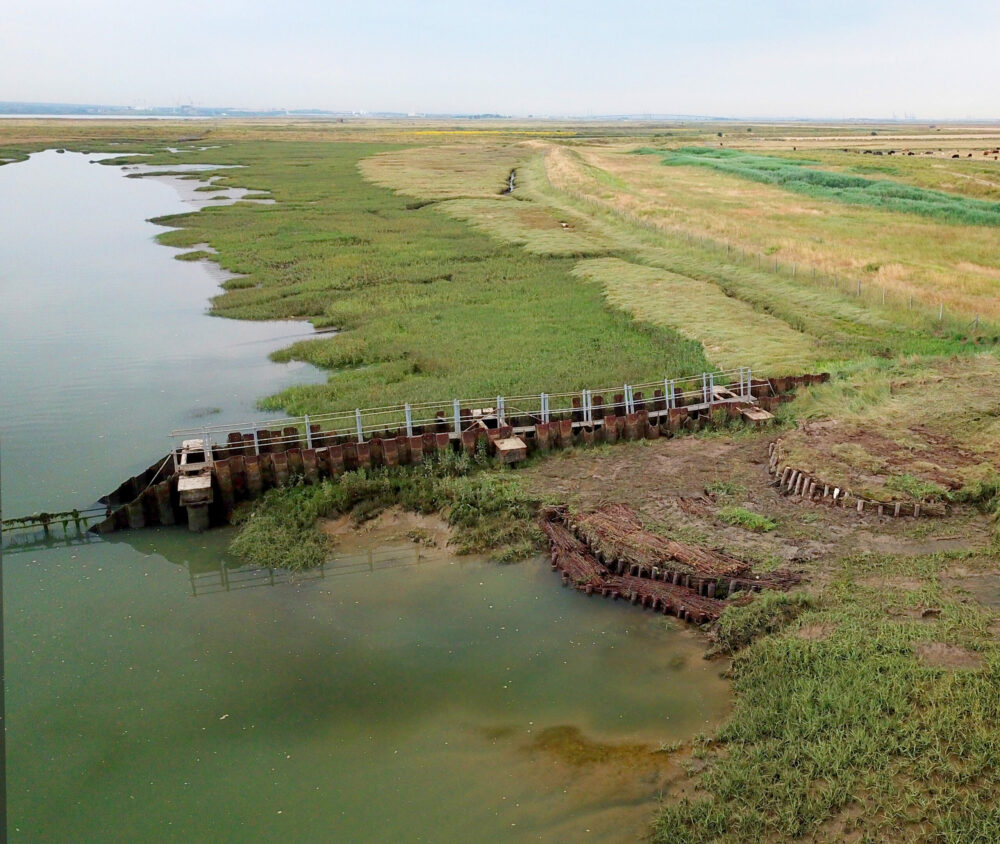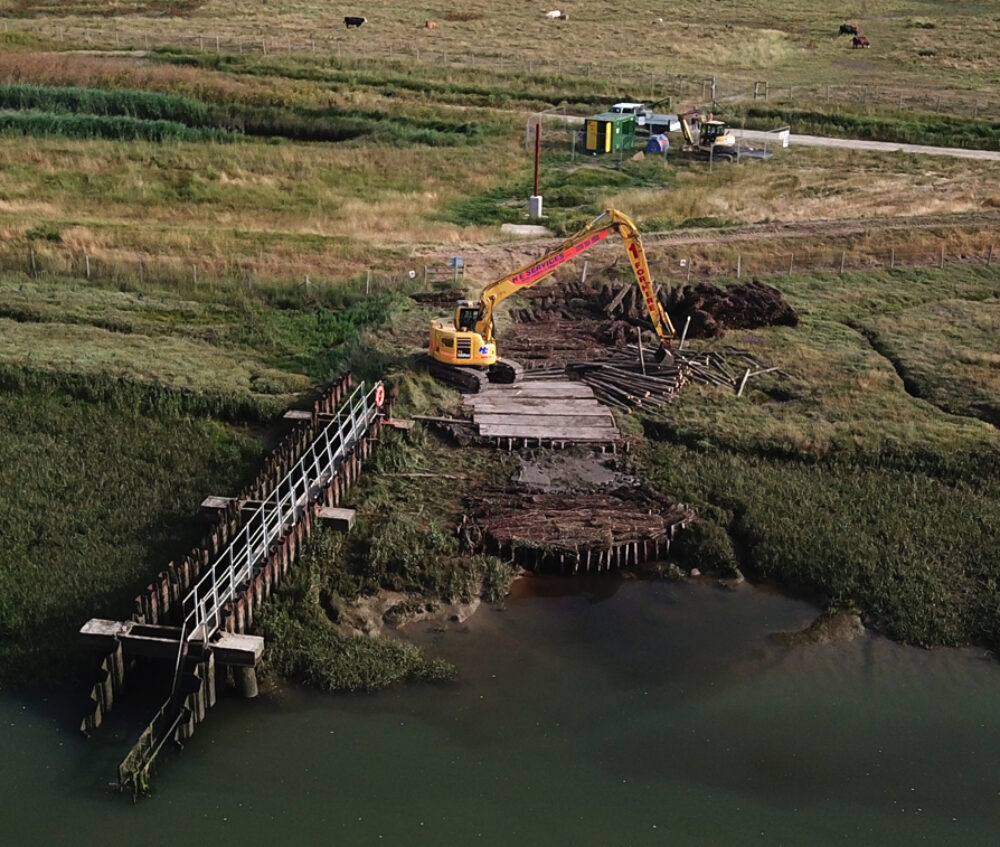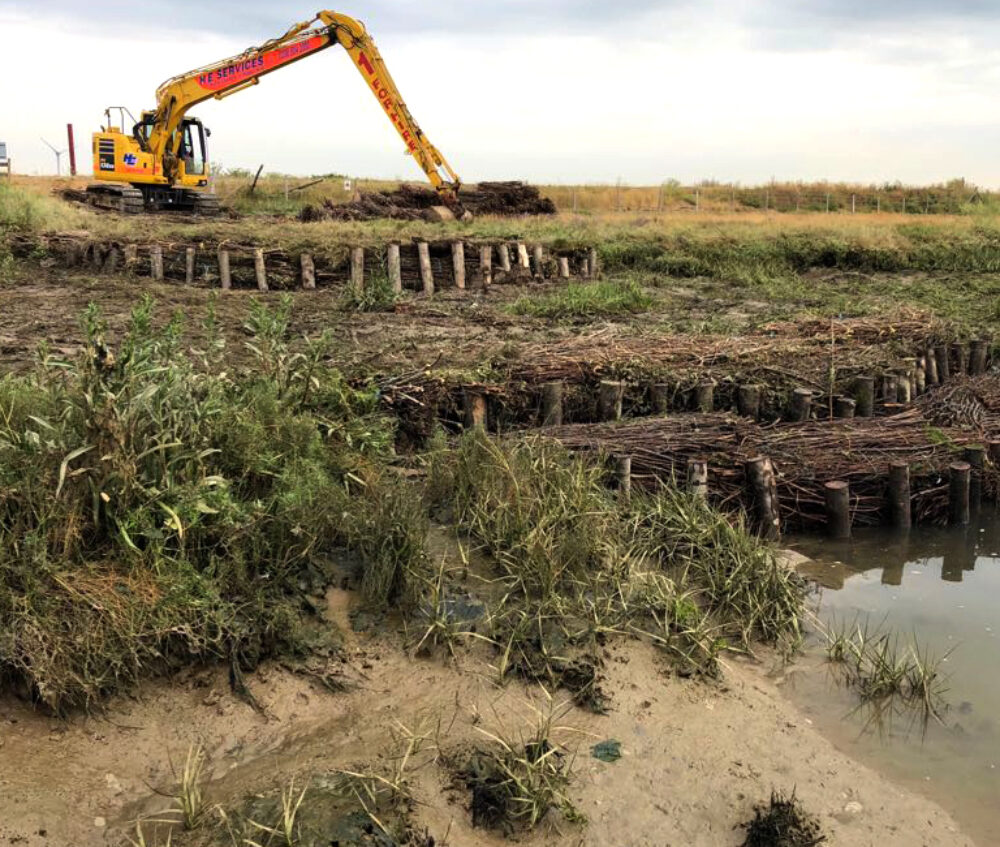
Saltmarsh Restoration
Saltmarsh Restoration Specialists
Saltmarshes are low-lying coastal wetlands where land meets the sea, and they are home to specialised salt-tolerant plants and diverse wildlife that adapt to seasonal changes. Saltmarshes offer a range of social, climate, economic and environmental benefits.
A healthy saltmarsh is key to sustaining our environment. Saltmarshes might look like grass and mud, but these spectacular coastal habitats are tackling some of the world’s most pressing crises. In a healthy and natural state, saltmarshes act as a natural flood defence and provide carbon sequestration, which adds value to restoration and biodiversity offsetting schemes. These unique coastal and tidal sites also play a crucial role in preserving the wider ecosystem, helping various habitats to thrive and providing countless species with ideal nursey grounds in which to grow. Saltmarshes also act as natural filters, absorbing pollutants like pesticides, heavy metals and hydrocarbons, significantly improving water quality along coastlines. They also boost the local economies through tourism, fishing and sustainable agriculture. However, there has been widespread degradation and loss of saltmarshes in the UK and globally due to human activity.
At FiveRivers, we understand that saltmarsh restoration and improvement is exceptionally valuable to the environment. As saltmarsh restoration experts, we can help to reverse some of the damage caused by either natural processes or human activities.
Saltmarsh restoration is a specialist area, due to obvious restrictions such as work only taking place at low tide and the need to avoid unnecessary disruption to important habitats and nesting sites at certain times of year.

The Problems
Erosion
From climate change to oil spills, agricultural drainage and development, there are countless ways in which saltmarshes have suffered. 85% of England’s saltmarshes have disappeared since 1860, and there are just 45,000 hectares of saltmarsh remaining in the UK, said the UK Centre for Ecology & Hydrology (UKCEH). This is particularly significant given that, in addition to their biodiversity value, saltmarshes provide essential ecosystem services to human communities, such as flood defence and control of estuarine nutrient pollution.
Saltmarshes erode over time, a process heightened by seal level rises, storm and flood events, and coastal engineering works. Fortunately, saltmarshes are able to recover if there is a regular and steady supply of sediment, which over time will develop diverse vegetation communities.

The Solutions
Nature-based Solutions
At FiveRivers, we work to protect saltmarshes by using nature-based solutions to slow down the velocity of sediment laden water in the incoming tide and cause it to drop sediment. The build-up of sediment over time reinstates the saltmarsh surface and encourages vegetation to grow and establish through natural succession. As well as helping to prevent coastal erosion, the saltmarsh restoration provides a refuge for an array of wildlife, including rare species of birds.
Saltmarsh restoration can only take place during low tide, which means that it is usually preferable for works to go ahead during the summer when daylight is at its greatest. Depending on the location of the saltmarsh, work should also be avoided at certain times, due to the nesting season for a number of red and amber list bird species.
Read our case study to get an idea of the challenges we’ve overcome, and to learn more about the specific saltmarsh restoration project we’ve carried out working with the Bioregional Learning Centre and partners on behalf of the Environment Agency.
If you have specific questions, or want to discuss a saltmarsh restoration project, our saltmarsh restoration experts are available to answer any queries, so don’t hesitate contacting us!

Contact us
Talk to an expert in Saltmarsh Restoration
Luke Roberts
Construction Manager
Get in touch by either phone or email to speak with Luke and discuss your needs. Alternatively click the button below to complete our contact form.
Telephone: 01722 783 041
Email: sales@five-rivers.com

Thank you for booking.
To stay in touch, please sign up to our newsletter.
Return to five-rivers.com
